While the bold predictions that AI will soon replace humans in most jobs have not yet become a reality, it must be acknowledged that AI has proven its effectiveness in many fields. Companies from various sectors have recognized this potential and have been intensively investing in AI solutions over the past two years.
AI agents, deployed for specific tasks, are changing our perception of productivity. For customers who have experienced the benefits of interacting with a well-designed agent, often, there is no turning back. The bar is set high when a problem is solved in the blink of an eye.
This is why using AI agents in the coming years will become not just an option but a necessity. According to Gartner, 80% of customer service and support organizations will apply generative AI technology in some form by 2025.
Let’s take a closer look at key AI agent use cases and successful real-world implementations to understand the key ingredients of success.
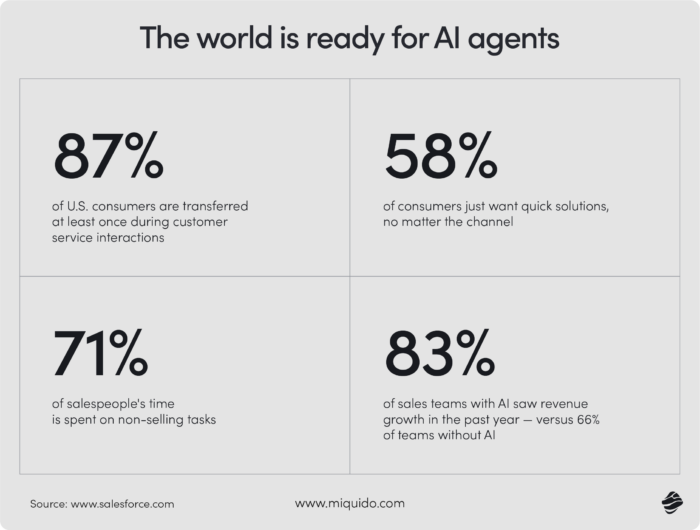
What are AI agents?
What is an AI agent? Although the name might suggest a human-like nature, an AI agent is simply an artificial intelligence system. It has a set of properties that enable it to act semi- or fully autonomously, achieving specific objectives and improving over time.
AI agents often require an integration with RAG (Retrieval-Augmented Generation) to effectively extract reliable information. They can be built based on an open-source GenAI model or be trained and deployed from scratch.
However, the second scenario is becoming increasingly rare since the boom in generative artificial intelligence and the availability of open-source language models.
Is a chatbot an AI agent? Absolutely — but an AI agent is much more than just an AI chatbot.
It could be an:
- Autonomous vehicles that navigate roads using sensors and AI decision-making.
- Recommendation systems on platforms like Netflix or Amazon.
- Robotic process automation (RPA) that handles repetitive tasks in business.
All these tools fall under the umbrella of AI agents.
Recognizing an AI agent. The 4As rule
Since the range is so broad, how to even form an AI agent definition? It all comes down to 4 As:
- Awareness: The agent can sense and gather data from its environment (e.g., using cameras, sensors, or data inputs) to understand its surroundings.
- Analysis: The agent processes the data it perceives to make decisions. This could be through pre-programmed rules, machine learning models, or advanced algorithms.
- Action: Based on the reasoning, the agent takes actions to influence the environment, move toward a goal, or improve its situation. The actions may include speaking, controlling a device, or interacting with users.
- Autonomy: An AI agent can operate independently, without needing constant human intervention or supervision. It can adjust its actions and decisions based on the environment.
AI agentic workflows function independently, what makes them a perfect way to cut costs and enhance performance. You can integrate them into your systems and tools, from project management software to warehouse and supply chain management solutions, assigning
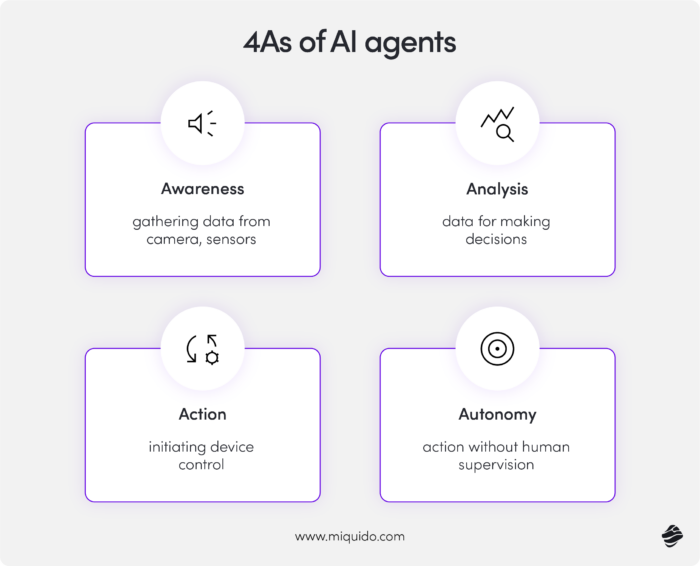
In the past, technology limitations posed significant obstacles to implementing “realistic” agents. The “uncanny valley” effect could be counterproductive, discouraging customers from interacting and ultimately draining budgets.
Today, this is no longer an issue — the progress of Generative AI has made it difficult to distinguish between generated images and real ones. However, the interface does not define an AI agent, but rather its ability to mimic a human worklow.
AI agents and their importance in modern enterprises
AI agents increase company productivity across multiple areas by taking over customer-facing tasks that can be automated. For management, this translates into clear benefits — one implementation instead of constant and rising recruitment and payroll costs.
But their role doesn’t stop there. They also support the internal functioning of a company. AI agents can provide employees with reliable data to help them make decisions and assist in analysis. Instead of leaving employees to sift through knowledge bases themselves, agents deliver specific information.
The possibilities are numerous, and the benefits are clear: the company works more efficiently, with fewer costs and errors, downtime and maintenance costs get lower…and much more.
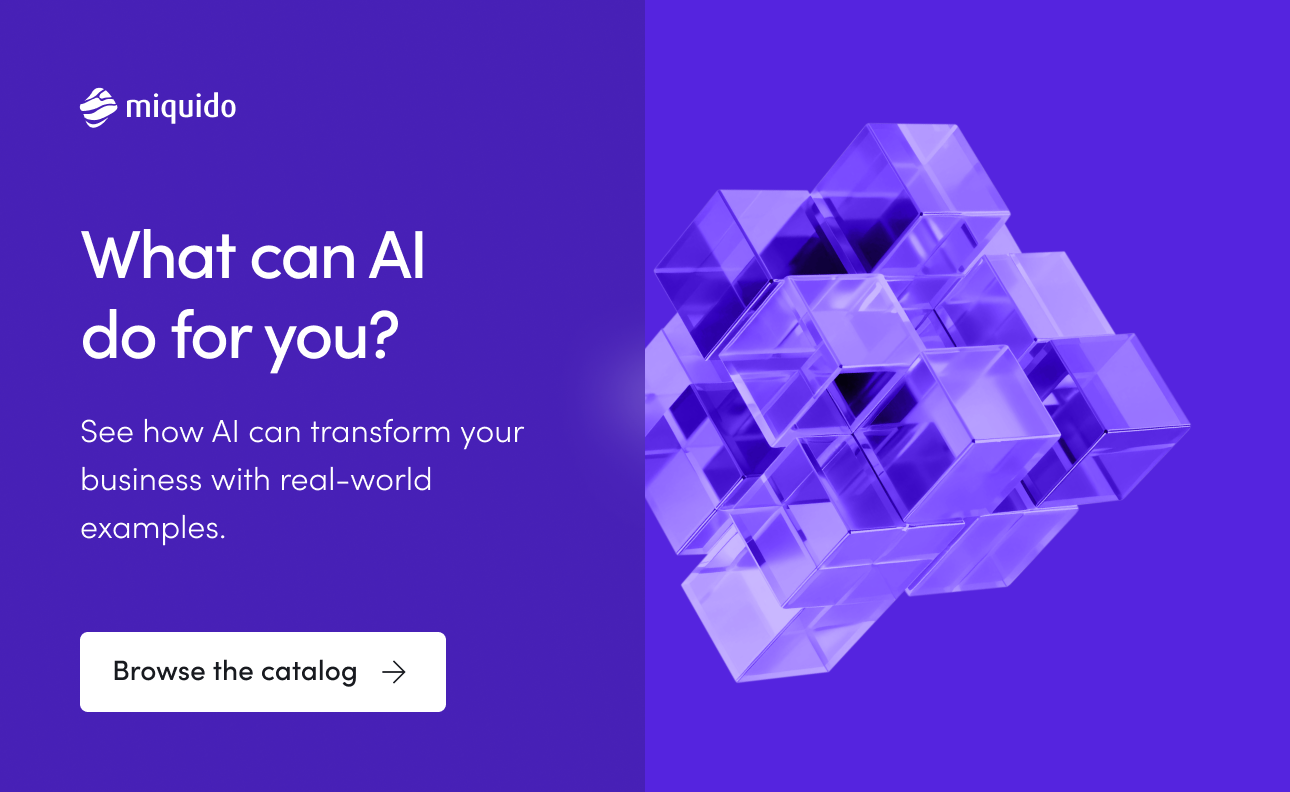
AI agents use cases in customer service
When you chat with a chatbot today while trying to resolve a checkout issue or finalize a return in an e’-commerce shop, do you feel a significant difference between interacting with a real human?
As GenAI progresses, that gap is steadily closing, and the customer service field is the first to benefit. Companies like Sephora, Klarna, H&M, and Merrill Lynch are already using AI agents to handle their customer inquiries and improve customer service. Streamlined communication, higher customer satisfaction – benefits are countless.
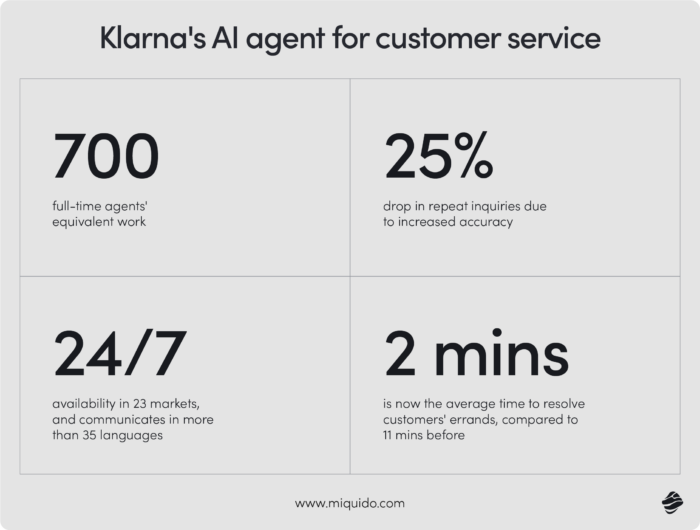
At a company with 5,000 customer service agents, using generative AI boosts issue resolution by 14% per hour and cut handling time by 9%, based on McKinsey’s research.
Automated support and issue resolution
Solving customer issues takes much more than it should? Clients are churning from your shop or service, because of waiting too long? AI agents can handle support tickets and resolve issues autonomously by understanding customer queries and providing immediate solutions.
By leveraging AI agents, businesses can reduce response times, improve efficiency, and enhance customer experience. No more waiting for a free consultant – AI agent seamlesly steps in, taking over the standard tickets, that make up most of the
Personalized customer interactions
Personalization is the new normal, and AI agents make it effortless. They can suggest products based on past purchases, adjust communication styles to match a customer’s tone, or prioritize solutions based on individual needs.
For example: your potential client is travelling soon for a wedding and is not sure where to look for the clothes they like within their budget? AI agent can recommend them perfect products in an instant – something that would take a human customer service quite a lot of time. It just needs an access to the history of their purchases and other personal data.
AI agents use cases in IT support
When a server issue paralyzes your online store, the last thing you want is to wait on the line for a consultant’s response. AI agents can address such situations and more in the blink of an eye, offering quick and efficient solutions.
Streamlining IT help desk operations
IT teams often drown in repetitive queries and routine troubleshooting tasks. AI agents step in to handle these efficiently, saving time and easing workloads. They can instantly resolve common issues like password resets or connectivity problems, allowing your team to focus on more complex challenges.
The impact is clear: faster issue resolution and smoother service delivery. Some businesses have seen a remarkable 25% cut in IT support costs after introducing AI agents.
Automating routine IT tasks
System monitoring, software updates, and server management—these routine IT jobs are time-consuming but essential. AI agents take over seamlessly, automating processes and ensuring systems run smoothly without constant human intervention.
From resolving minor errors to ensuring updates happen on schedule, these agents supercharge IT operations, reducing downtime and improving overall efficiency.
AI agents use cases in human resources
HR has “human” in its name, but in recent years, automation has increasingly influenced the field. Nowadays, as the job market becomes more challenging and companies receive more mismatched applications than ever, the benefits of AI agents in recruitment are hard to ignore.
Humans remain essential and irreplaceable in this sphere, but AI agents help organize, filter, and provide information, freeing up time for the tasks that matter most.
Recruitment and candidate screening
When you apply for a job today, especially at a large enterprise, there is a very high chance your CV is first screened by an algorithm. AI agents can scan resumes, assess candidates’ qualifications, and even conduct initial interviews.
Take an example of Unilever. The company uses AI-powered tools to streamline its recruitment process for over 30,000 hires annually.
By utilizing aptitude games and video interviews analyzed by machine learning algorithms, the company saves 70,000 hours in candidate screening, ensures a data-driven assessment of skills and fit, and identifies top talent efficiently from a global pool of 1.8 million applicants.
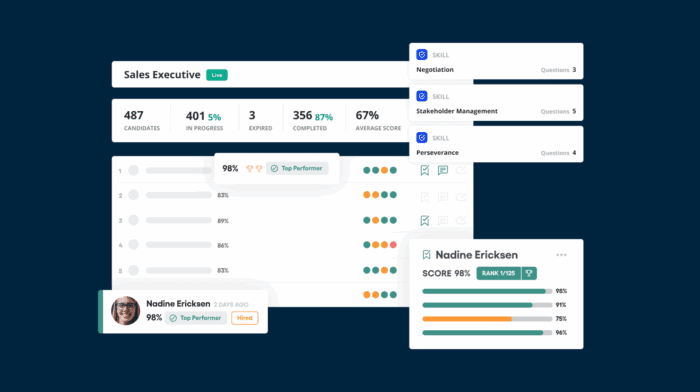
Employee onboarding and training
Starting a new job can be overwhelming, but artificial intelligence agents simplify the process. They guide new hires step-by-step through onboarding tasks, deliver customized training materials, and provide instant answers to common questions.
Imagine a virtual assistant that not only adapts to each employee’s pace but also uses data analysis to track progress and identify areas needing extra attention. This reduces reliance on HR for routine inquiries and ensures smoother AI powered employee onboarding from day one.
AI agents use cases in sales and marketing
In the era of AI in marketing and sales, the human touch matters more than ever. However, this doesn’t mean there’s no place for artificial intelligence agents. Skillfully deploying AI agents can enhance the efficiency of marketing efforts.
At the same time, it creates room for more creative initiatives and strategic planning in teams overloaded with time-consuming tasks. By ensuring that AI agents collaborate seamlessly with human teams, businesses can achieve a balance that drives both innovation and productivity.
Lead generation and qualification
In today’s competitive market, finding quality leads isn’t just about luck—it’s about data-driven strategy. AI agents excel in automating routine tasks like lead prioritization while using historical data to identify opportunities in the sales funnel.
They can even highlight high-value leads or suggest revisiting past prospects, helping human agents focus on closing deals with the greatest potential for long-term value.
Personalized marketing campaigns
The key to a successful campaign? Speaking directly to the customer’s biggest pain points. AI agents craft hyper-targeted messages and formats, ensuring every communication addresses a customer’s specific pain points.
By leveraging customer relationship management data and analyzing past interactions, these agents deliver recommendations and solutions that boost engagement and drive improved customer satisfaction.
Whether it’s a product recommendation or a perfectly timed follow-up email, personalization drives engagement—and with it, higher chances of conversion.
AI agents use cases in finance
Financial institutions can embrace ai agents for various purposes, benefiting from these solutions as much as their customers.
Fraud detection and prevention
As financial fraud becomes increasingly sophisticated, AI agents rise to the challenge with advanced detection capabilities. Unlike simple reflex agents, these AI-powered tools don’t just rely on standard rules—they adapt to your personal spending habits, flagging any unusual patterns or deviations in real time.
They also provide tailored tips, showing users how to improve their security practices and avoid common mistakes. Implementing AI agents for fraud prevention has made financial systems more secure than ever.
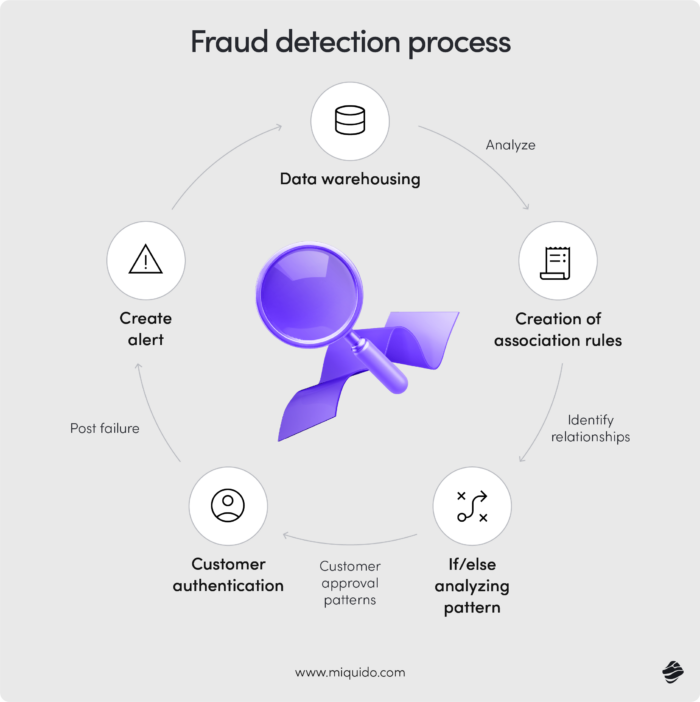
Automated financial advising
Financial advice is no longer reserved for the wealthy – and AI agents help in that transition. They democratize access to personalized financial insights, offering recommendations at the click of a button.
By analyzing customer data and leveraging data-driven insights, these agents quickly identify spending patterns, highlight areas for cost savings, and suggest adjustments with minimal effort. Whether it’s cutting unnecessary expenses or planning long-term investments, they empower users to make informed decisions efficiently.
AI agents use cases in healthcare
An overburdened healthcare system can greatly benefit from incorporating AI agents into everyday workflows. With a shortage of personnel and an increasing number of patients, it becomes harder to effectively monitor therapy progress and explore more complex diagnoses.
AI agents work on tasks like managing data for various purposes and extracting key insights, leveraging natural language processing. In the face of shifting demographics, they prepare us for inevitable changes, enabling more efficient management of limited staff resources.
Patient data management
Managing patient information is critical to modern healthcare development, but it’s also a time-intensive process.
AI agents streamline the handling of electronic health records by transferring key details across departments, extracting actionable insights, and ensuring compliance with HIPAA and GDPR regulations.
This reduces routine tasks for medical staff, enabling them to focus on patient care while improving transparency and operational efficiency.
Virtual health assistants
Imagine your doctor assigning you a virtual assistant. It collects data about your symptoms and test results, asks follow-up questions, reminds you to take your medications, provides information about dosages, and addresses your concerns about side effects and drug interactions.
When it’s time for your next visit, the doctor uses the assistant’s support to gain a comprehensive picture of your health.
This could soon become the norm with the growing adoption of AI agents in healthcare. These AI powered virtual assistants analyze medical records, monitor symptoms, and track treatment progress to provide reminders, guidance, and insights when needed.
Multiple agents can collaborate to assist medical professionals with complex tasks like analyzing medical images, while simultaneously guiding patients through therapy with customized advice and alerts.
AI agents use cases in eCommerce
Product recommendations
Understanding user behavior is key to e-commerce success. AI agents make it easier for you, constantly analyzing browsing history, purchase patterns, and even factors like local weather. They use this data to deliver precise, personalized product recommendations.
For example, if a customer adds a coat to their cart, the system might suggest matching gloves or a scarf. It could also offer a limited-time discount to encourage them to complete the purchase.
These AI agents don’t stop at basic suggestions. They adapt in real-time to customer actions, offering more relevant options as they go. This boosts engagement, increases sales, and creates a better shopping experience. Satisfied users are far more likely to return.
Inventory management
Picture this: it’s the holiday season, and an online retailer is overwhelmed with orders for their top-selling wireless headphones. Demand surges, and suddenly, key models are out of stock. Customers are frustrated, and the business loses sales. Meanwhile, less popular colors sit unsold, taking up warehouse space.
AI agents can prevent this chaos. They analyze past sales, track trends, and even account for events like holiday sales. With these insights, they predict demand with pinpoint accuracy. In this scenario, the AI would have flagged the headphones’ growing popularity weeks earlier, ensuring stock levels were adjusted in time.
If one model sells faster than expected, they suggest moving stock from another warehouse or expediting supplier orders. This keeps shelves stocked and customers happy.
Future trends in AI agent applications
AI agents will become increasingly common in enterprise environments, taking over specific tasks from employees. What will change? Most notably, our trust in them, and with that, the level of supervision they require. As AI agents become more widespread and their technology improves, companies will place greater trust in them. Industries that absorb the innovations slower will join the AI wave, introducing AI agents in manufacturing, law and regulatory services, and more. In turn, these agents will learn faster and deliver measurable benefits more quickly. It’s a win-win!
AI agents will also enter our daily lives, as demonstrated by Google’s prototype, Project Mariner. This AI agent operates within a web browser, automating tasks like filling out forms, interacting with text, code, images, and more.
By automating online tasks and reducing the need for manual input, Project Mariner demonstrates a future where productivity tools powered by AI handle repetitive processes seamlessly. Once widely adopted, this technology could redefine efficiency in both personal and professional workflows.
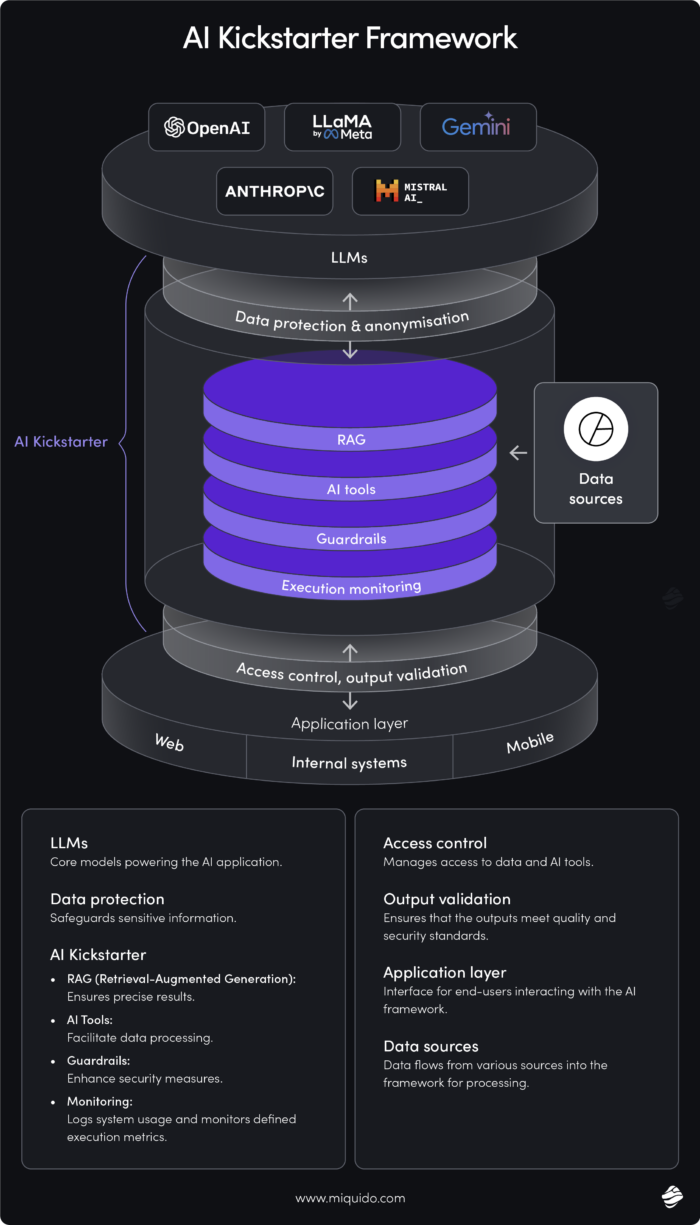
With our artificial intelligence development services, you can create a solution that meets your specific goals while maximizing benefits. We will help you choose an AI agent architecture that matches your needs and capacities of your systems. Let’s discuss your idea!

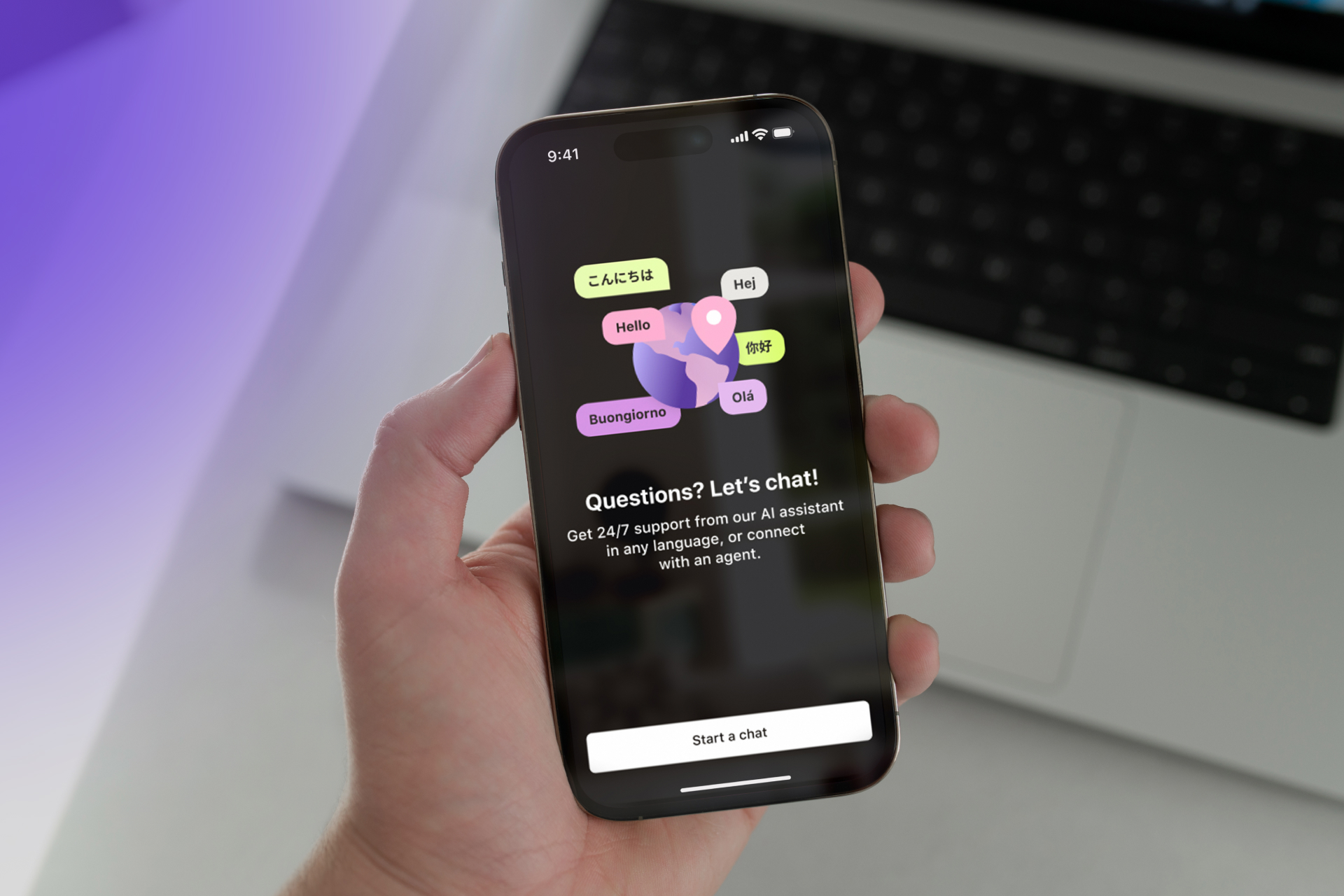


![[header] top generative ai companies in 2025 min](https://www.miquido.com/wp-content/uploads/2025/09/header-top-generative-ai-companies-in-2025-min-432x288.jpg)
![[header] top ai use cases in ecommerce b2b from manufacturing to foodtech](https://www.miquido.com/wp-content/uploads/2025/09/header-top-ai-use-cases-in-ecommerce-b2b_-from-manufacturing-to-foodtech-432x288.jpg)
![[header] top 5 use cases for autonomous delivery in foodtech today](https://www.miquido.com/wp-content/uploads/2025/08/header-top-5-use-cases-for-autonomous-delivery-in-foodtech-today-432x288.jpg)